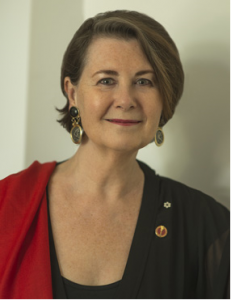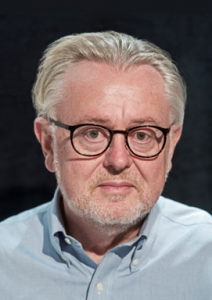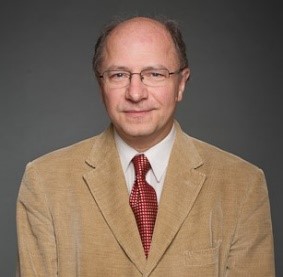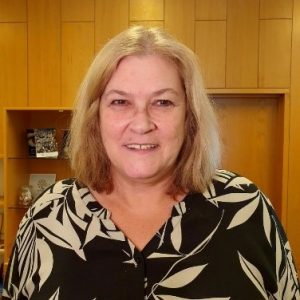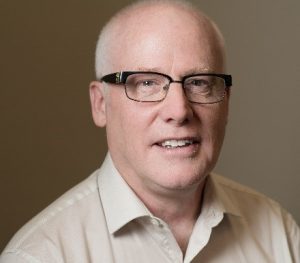AHRC Fellows
Senator Marilou McPhedran
Marilou McPhedran is a human rights lawyer, professor and activist, appointed as an independent senator in the Parliament of Canada by Prime Minister Justin Trudeau in November 2016. Marilou was one of the most influential leaders of the 1981 Ad Hoc Committee of Canadian Women on the Constitution conference- the grass roots social movement of women across Canada resulting in stronger equality rights in the constitution. She co-founded several internationally recognized non-profit Canadian organizations such as the Women’s Legal Education and Action Fund (LEAF); the Metropolitan Action Committee on Violence Against Women and Children (METRAC); and the Gerstein Crisis Centre for homeless discharged psychiatric patients. She was the founding Principal of the University of Winnipeg Global College and has facilitated student access to UN sessions for more than 20 years to provide practical skill building by providing rapporteur services to NGO presentations. She is a founding board member of the Global Network of Women Peacebuilders (Young Women for Peace and Leadership) and has given extensive voluntary support to civil society organizations that focus on peacebuilding and women’s rights, including the Afghan Women’s Organization, Canadian Council of Muslim Women, Canadian Voice of Women for Peace, and Manitoba Women for Women of South Sudan.
Professor William Schabas, OC, PhD
Professor William A. Schabas is professor of international law at Middlesex University in London. He is also professor of international human law and human rights at Leiden University, emeritus professor of human rights law at the National University of Ireland Galway and honorary chairman of the Irish Centre for Human Rights, invited visiting scholar at the Paris School of International Affairs (Sciences Po), honorary professor at the Chinese Academy of Social Sciences in Beijing, visiting fellow of Kellogg College of the University of Oxford, and professeur associé at the Université du Québec à Montréal. He has appeared as counsel before several international and national courts and tribunals including the International Court of Justice, the International Criminal Court, the Grand Chamber of the European Court of Human Rights and the Supreme Court of Canada.
Professor Schabas holds BA and MA degrees in history from the University of Toronto and LLB, LLM and LLD degrees from the University of Montreal, as well as honorary doctorates in law from several universities. He is the author of more than twenty books dealing in whole or in part with international human rights law and has published more than 350 articles in academic journals, principally in the field of international human rights law and international criminal law. Professor Schabas was editor-in-chief of Criminal Law Forum, the quarterly journal of the International Society for the Reform of Criminal Law, from 1998 until 2015, and is now its editor emeritus. Professor Schabas has worked as a consultant on capital punishment for the United Nations Office of Drugs and Crime, and drafted the most recent quinquennial reports of the Secretary-General on the status of the death penalty. Professor Schabas has participated in human rights fact-finding missions on behalf of international non-governmental organizations including Amnesty International and the International Federation of Human Rights to Rwanda, Burundi, South Africa and Russia. He was President of the Irish Branch of the International Law Association from 2009 until 2015 and has been Chair of the International Institute for Criminal Investigation since its founding, in 2000. From 2009 to 2011, he was the President of the International Association of Genocide Studies. From 2002 to 2004 he served as one of three international members of the Sierra Leone Truth and Reconciliation Commission. He was Chairman of the Board of Trustees of the United Nations Voluntary Fund for Technical Assistant in Human Rights from 2009 to 2011. He was appointed Chair of the United Nations Independent Commission of Inquiry on the 2014 Gaza Conflict.
Professor John Packer, Director, Human Rights Research and Education Centre
John Packer is Director of the Human Rights Research and Education Centre and Neuberger-Jesin Professor of International Conflict Resolution in the Faculty of Law at the University of Ottawa. He previously taught at the Fletcher School (Tufts University) and the University of Essex, held Fellowships at Cambridge and Harvard Universities, and has lectured at academic and professional institutions around the world. Over his 30-year career, he was an inter-governmental official for 20 years (UNHCR, ILO, OHCHR, UNDPA, OSCE) and has advised numerous governments, communities and other actors in over fifty countries. In 2012-2014, he was the Constitutions Expert on the United Nations’ Standby Team of Mediation Experts. The focus of his research and practice is at the inter-section of human rights (including minority rights) and security, notably conflict prevention and quiet diplomacy, international mediation, transitional arrangements, and institutional developments at domestic and multilateral levels.
Margrét Steinarsdóttir, Director, Icelandic Human Rights Centre
Margrét Steinarsdóttir is a lawyer and the director for the Icelandic Human Rights Centre. The purpose and aim of the Centre is to promote human rights by collecting information on and raising awareness of human rights issues in Iceland and abroad. Before that Margrét was the director for the Intercultural Centre in Iceland, an information and counseling centre for immigrants. Her areas of expertise are; gender equality, gender violence, trafficking in human beings, immigrant and asylum issues, discrimination, hate speech and data protection. Prior to joining the IHRC she was employed as the Intercultural Centre‘s lawyer from 2004, and took over as the Centre‘s director in January 2009 until November that same year. Margrét has also worked for the Government Gazette (Lögbirtingablaðið) as well as with the Law and Ministerial Gazette (Stjórnartíðindi), Director of Internal Revenue (Ríkisskattstjóri) and Data Protection Authority (Persónuvernd).
Alex Neve, Secretary-General, Amnesty International Canada
Alex Neve is a visiting and adjunct professor in international human rights law at the University of Ottawa and Dalhousie University, and a Senior Fellow with the University of Ottawa’s Graduate School of Public and International Affairs. He served as Secretary General of Amnesty International Canada’s English Branch from 2000 – 2020. He is a lawyer, with a Master’s Degree in International Human Rights Law from the University of Essex. Alex is an Officer of the Order of Canada.
Alex Neve is a visiting and adjunct professor in international human rights law at the University of Ottawa and Dalhousie University, and a Senior Fellow with the University of Ottawa’s Graduate School of Public and International Affairs. He served as Secretary General of Amnesty International Canada from 2000 – 2020. He took part in over forty human rights research and advocacy delegations throughout Africa, Asia, Latin America, Guantánamo Bay and, closer to home, First Nations communities in Canada. He has an LLB from Dalhousie University and a Master’s Degree in International Human Rights Law from the University of Essex. He has served as a member of the Immigration and Refugee Board, taught at Osgoode Hall Law School, been affiliated with York University’s Centre for Refugee Studies, and worked as a refugee lawyer in private practice and in a community legal aid clinic. Alex has been named an Officer of the Order of Canada and served as a Trudeau Foundation Mentor. He is a recipient of a Queen Elizabeth II Diamond Jubilee Medal. He has received three honorary Doctorate of Laws degrees.
Alex Neve believes in a world in which the human rights of all people are protected. He is presently a visiting and adjunct professor in international human rights law with the Faculties of Law and Social Sciences at the University of Ottawa and Dalhousie University, and a Senior Fellow with the University of Ottawa’s Graduate School of Public and International Affairs. He served as Secretary General of Amnesty International Canada’s English Branch from 2000 – 2020. In that role he led and took part in over forty human rights research and advocacy delegations throughout Africa, Asia, Latin America, Guantánamo Bay and, closer to home, First Nations communities in Canada. Alex is a lawyer, with an LLB from Dalhousie University and a Master’s Degree in International Human Rights Law from the University of Essex. He has served as a member of the Immigration and Refugee Board, taught at Osgoode Hall Law School, been affiliated with York University’s Centre for Refugee Studies, and worked as a refugee lawyer in private practice and in a community legal aid clinic. He is the Chair of Canadian Leadership for Nuclear Disarmament and the Canadian Coalition on Human Rights in China, serves on the Board of Directors of the Centre for Law and Democracy, is a Fellow with the Atlantic Human Rights Centre and is a Principal Researcher with the University of Ottawa’s Centre for International Policy Studies. Alex has been named an Officer of the Order of Canada and served as a Trudeau Foundation Mentor. He is a recipient of a Queen Elizabeth II Diamond Jubilee Medal. He has received honorary Doctorate of Laws degrees from St. Thomas University, the University of Waterloo and the University of New Brunswick.

